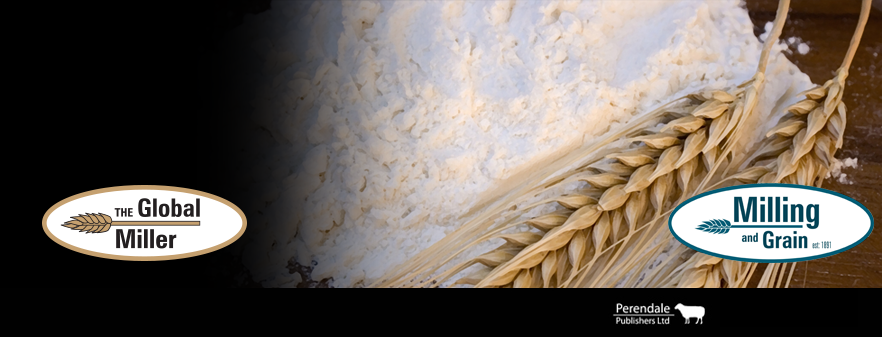A REPORT into the UK poultry industry by an independent think tank says maintaining a relationship with the EU is vital to the British economy.
The report by ResPublic – an independent non-partisan think tank that seeks to establish a new economic, social and cultural settlement for the United Kingdom – looks at three possible Brexit scenarios for the poultry meat industry.
The report – Coming Home To Roost – outlines the importance of the poultry sector in its executive summary: “The poultry meat sector is a vital British industry. Over 50 per cent of all meat consumed in the UK is poultry of which 88 per cent is chicken.
“The industry directly employs over 37,000 people and sustains a total of 87,700 jobs, turning over £7.2bn and contributing £5bn Gross Value Added (GVA) to the UK economy.
“For every £1bn the sector contributes in GVA, it also generates £1.2bn in the rest of the economy and it also contributes over £1bn in direct and indirect tax revenue.
“Ensuring the sustainability of the sector post-Brexit is fundamentally important to Britain’s economy.”
The UK is the fourth largest poultry meat producer in the EU and is about 60 per cent self-sufficient. UK consumers prefer to eat white breast meat rather than dark cuts like wings, legs and thighs. This means the UK is a net importer of poultry – predominantly of chicken breast – while producers have to export surplus dark meat to maximise revenue.
“The profitability of the sector is therefore dependent upon finding a market for 75 per cent of the bird that is left over after removing the breast,” the summary continues.
“At present about 70 per cent of our dark meat exports are to the EU and the majority of the poultry meat that is imported into the UK, including fresh chicken breast comes from the EU.
“Maintaining this relationship is therefore vital to both the sector and the British consumer.”
The report identifies three scenarios the UK is possibly facing post-Brexit:
· Scenario 1 Evolution which maintains the status quo
· Scenario 2 Trade Liberalisation where the UK reverts to World Trade Organisation (WTO) terms and then unilaterally removes tariffs on imports from all countries worldwide (Including the EU.)
· Scenario 3 Fortress UK or “no deal” where the UK fails to agree a trade deal with the EU, reverts to WTO terms and applies these to imports from the EU.
“We argue that Fortress UK represents a worst-case scenario for the poultry industry and British consumer,” says the report.
“In this scenario the UK reverts to WOTO rules, resulting in additional trade friction costs of eight per cent with the introduction of new checks to ensure regulatory equivalence that would create significant delays.”
The report goes on to say that any restrictions on the free movement of labour will result in increasing wage and labour costs of 50 per cent.
A ‘no deal’ Brexit also threatens the values which UK consumers hold.
“It presents an unprecedented challenge to the quality, availability, affordability and choice of poultry meat in the UK,” it says.
The UK has some of the highest health, environmental and welfare standards in the world.
“Should the UK fail to agree a free trade agreement (FTA) with the EU and/or unilaterally removes tariffs for all trade partners, there is a danger that UK consumers will be faced with a lowering of standards and poorer quality foods with imports from non-EU states.”
Chlorinated chicken from the US is already a concern, the report says, and the US has already said that abolishing EU health, safety and welfare standards is essential for any future trade deals with the UK.
“Given the less vigorous nature of US food standards, increasing the import of US poultry meat in a Fortress UK scenario would expose UK consumers to inferior standards at the expense of higher standard UK poultry.
“These values are important to British consumers and must not be sacrificed by the UK leaving the EU.”
Another impact of a no deal Brexit is the possibility of the creation of a two-tier food system where only the wealthy can afford to eat fresh home reared chicken because of the increased costs of production.
Rolling back the EU’s regulatory net would have ‘significant impacts’ upon the environmental sustainability of the poultry meat industry.
“Consumers and producers care about the sustainability of poultry meat and by forfeiting access to EU regulatory bodies, the UK could lose monitoring, scrutiny, transparency, accountability and enforcement powers for its environmental policies that make it Europe’s leader in this field,” says the report.
“Brexit therefore poses economic, social and environmental risks to the UK and its consumers.”
The report goes on to make a number of recommendations which could be put in place to offset the risks.
“Brexit must be used as an opportunity to re-focus our attention on British values, to state boldly that prioritising high standard, affordable and sustainable British produce, for all, is at the top of our agenda.”
-ends-
Read more HERE.
The Global Miller
This blog is maintained by The Global Miller staff and is supported by the magazine Milling and Grain
which is published by Perendale Publishers Limited.
For additional daily news from milling around the world: global-milling.com



No comments:
Post a Comment